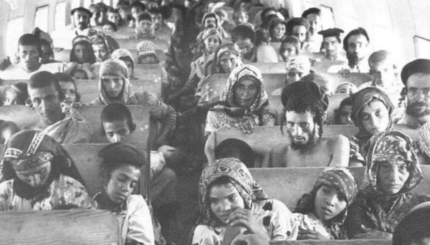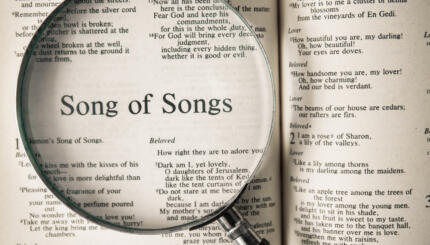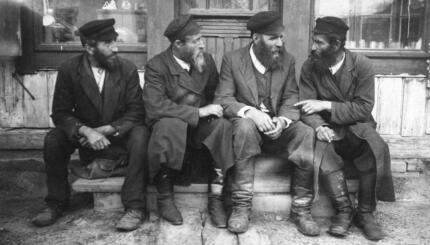Next week, the Israeli jam band HaMakor will be headlining May 31’s Salute to Israel Parade in Central Park. First, however, they’ll be doing a show at Sullivan Hall in the West Village, fresh off the plane from Israel.
Nachman Solomon, who fronts HaMakor, is a scion of one of Israeli music’s most impressive families. His father, Ben Zion Solomon, co-founded the Diaspora Yeshiva Band, which sounds like a high school marching band but actually almost single-handedly rescued Jewish music from that bad-synthesizer-and-schmaltzy-singer paradigm that, even today, threatens the civilized world, showing Jews that, sometimes, all you really need for a good song is an acoustic guitar and good intentions. His brothers Yosef, Meir and Solomon play in Moshav, and his other brother Noah fronts the band Soulfarm.
But enough about Solomon’s legacy. The band’s possibly-self-titled debut album, The Source (it’s the English translation of HaMakor), is comparable to anything the Grateful Dead or Dave Matthews has released, splitting time equally between acoustic and electric rock, psychedelia, sweet pop songs and rhythm-driven jams that could make for some aggressive pogo-ing.
Recently, the band has been playing with Bruce Burger, the remarkable guitarist/singer/world-music producer who fronts the band Rebbe Soul, and has stepped up their once-sporadic trips to the USA. We hit up the Israeli-born, Jerusalem-based Nachman Solomon with a few questions about growing up musical, what drives him to write about the Bible, and what to expect at this year’s Israeli Day Parade.
How did HaMakor start?
We started about 4 years ago. I started it with my good friend Layzer Greenwald. He came to the Moshav [Mevo Modi’in, the Israeli town started by Shlomo Carlebach], where I met him and we just had a good click.
Later, he ended up moving to the U.S. for a bit, so we parted ways. A good friend of mine, Yakir [Hyman, who also fronts his own band], had just moved back to Israel from New Jersey. We also had a really good click and it was a good match. We got our first gig, and they asked, What the band is called? I always liked the name “Hamakor,” so I told them that was our name, and it stuck.
You grew up in a famously musical family. When did you start writing your own songs? How hard was it to separate your own songs from your brothers’ and your father’s?
It wasn’t hard at all to separate our songs. There were so many going on, it just happened naturally. I started writing my own songs since I can remember myself — probably at about age four. When I was a kid, I would sing in the shower. As soon as I would come out, my brother Yehuda would record what I made up in the shower.
On some of your songs, like “Eliyahu HaNavi,” it’s pretty clear who you’re talking about and what tradition it’s coming from. On others, like “Lost Man,” and “Should’ve Known,” the meaning and the actual story of the song isn’t as clear-cut or explicit. Do you consciously decide to write a song about a Biblical character, or about yourself?
The Biblical and the other songs I write all come from the same place from the mode or feelings I have, or what is going on in my life at the time. I always try to connect it with God and try to bring a positive message.
Was Rebbe Soul always a member of the band?
No! Rebbe Soul joined the band when Yakir was drafted into the army.
How has playing with him been? How do you handle having several different songwriters and visions of the way a song “should” be?
Rebbe Soul has a lot of experience playing live; he has helped me grow musically a lot. We bring our own songs to the rest of the band when the lyrics are done, so the message of the song itself is not really changed. But we all have something to do with the production of the song, so it kind of becomes all of ours.
HaMakor plays at Sullivan Hall tomorrow night, May 20, and at the Salute to Israel parade. See them live, or listen to a 2-hour interview with HaMakor and Rebbe Soul conducted by our friend Ben Bresky.


